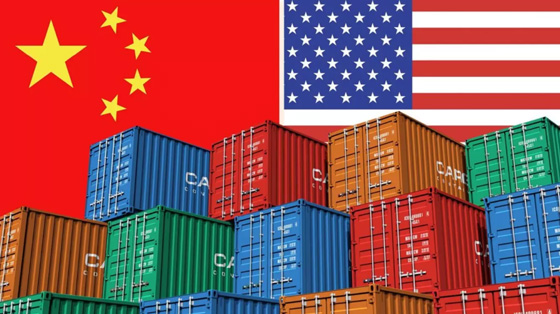Tao Wenzhao, Honorary Member of the Chinese Academy of Social Sciences; Fellow, CASS Institute of American Studies
Jun 26, 2019
Amid trade war and perceived China-US disagreement, silver linings are often ignored. But outside of Washington and Beijing, Sino-US cooperation is thriving at the local and private level, while China’s commitment to reform provides a stable foundation for the bilateral relationship.
Wu Zurong, Research Fellow, China Foundation for Int'l Studies
Jun 26, 2019
To make America great again—or “keep America great,” as Trump’s reelection slogan goes—in plain language means effectively strengt
Rene Zou, China-focused policy analyst with a dual master’s from Sciences Po, Paris and Peking University
Jun 26, 2019
In a trade war between two of the world’s largest economies, there are no winners. The U.S.-China trade spat will have spillover effects, with severe consequences for not only Asia, but the rest of the world.

Stephen Nagy, Professor, Department of Politics and International Studies at the International Christian University
Jun 25, 2019
Seen as a whole, the trade war is part of a comprehensive strategy to constrain China. Hopes for a breakthrough at the G20 are ill founded, as is a compromise in the coming months.
Jun 25, 2019
FedEx Corp on Monday sued the U.S. government, saying it should not be held liable if it inadvertently shipped products that violated a Trump administration ban on exports to some Chinese companies.
Jun 24, 2019
Move follows White House executive order restricting some foreign-made gear and services
Li Zheng, Assistant Research Processor, China Institutes of Contemporary International Relations
Jun 21, 2019
Sino-US relations are not only tense, but dangerously rigid — in the US, a “tough on China” or even Cold War attitude is now the norm. To avoid a worst-case scenario of confrontation, both sides need to conduct urgently needed repairs to their neglected mutual ties.
Cui Liru, Former President, China Institutes of Contemporary International Relations
Jun 21, 2019
The trade war is only the latest twist in a tangled China-US relationship. For the two sides to find common ground, the US must accept China’s rise to superpower status on an equal footing, and China should acknowledge the post-World War II order that the US built.

Lucio Blanco Pitlo III, President of Philippine Association for Chinese Studies, and Research Fellow at Asia-Pacific Pathways to Progress Foundation
Jun 21, 2019
The US-China rivalry constitutes a new formidable challenge to Southeast Asia’s cohesion, so they should continue to engage all powers and reinforce consensus among themselves.
Hu Bo, Director, the South China Sea Strategic Situation Probing Initiative
Jun 10, 2019
The Trump administration’s rash policies, combined with China’s persistent rise, have combined to grow Chinese influence and shrink the US footprint in the Asia-Pacific. But China must be sure to respect the interests of ASEAN countries and other regional stakeholders in crafting the norms and procedures for a new rules-based order in the region.
Back to Top

- China-US Focus builds trust and understanding between the U.S. and China through open dialogue among thought leaders.
- Our Offerings
- Topics
- Videos
- Podcasts
- Columnists
- Research Reports
- Focus Digest
- Stay Connected
-
Thanks for signing up!
- Get the latest stories from China-US Focus weekly.